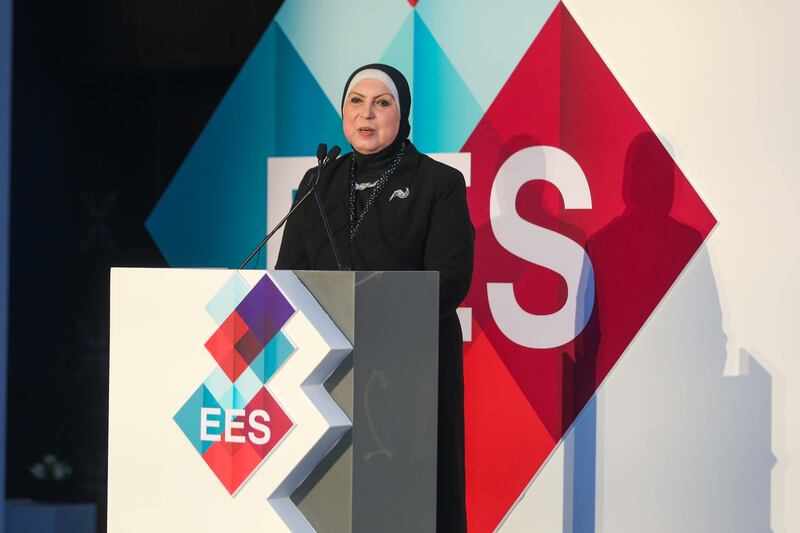Egypt is aiming to double its export revenue to $60 billion by 2025 as part of its plan to eventually reach $100bn, its Minister of Trade and Industry said.
The country is on track to reach an initial goal of $60bn owing to the government’s support for exporters during the Covid-19 pandemic and increased local production, Nevine Gamea told Al Arabiya television station.
Egypt's export revenue surged by a record 22.5 per cent annually to $31bn in 2021, according to a statement from Prime Minister Mostafa Madbouly.
In 2020, President Abdel Fattah El Sisi had set an ambitious target to reach $100bn in exports over the next few years, without specifying a concrete deadline.
Hani Berzi, chairman of the Food Export Council, told The National he believes the $60bn target is achievable and the $100bn target could follow by 2030.
"We are on the right track. Our exports will continue to grow. Especially when the situation worldwide normalises post-pandemic and the supply chain is back to normal, I think we will achieve even better results," Mr Berzi said.
Despite the pandemic, Egypt’s gross domestic product rose 3.3 per cent in the 2020-21 fiscal year that ended on June 30, according to the International Monetary Fund.
Economic growth is expected to reach 5.6 per cent in the fiscal year that ends in June 2022 and the draft budget for the 2022-23 fiscal year is targeting 5.7 per cent growth, the finance ministry said earlier this month.
Last year Egypt said it would embark on a three-year structural reforms programme to support private sector-led economic growth and develop key sectors. These include manufacturing, agriculture, and telecoms and IT.
The Export Development Fund disbursed 23bn Egyptian pounds ($1.4bn) in subsidies to exporters in 2021, Ms Gamea said.
Government support helped to grow exports significantly in 2021, including the payments of arrears that had been delayed for years, Mr Berzi said. Small and medium-sized enterprises have also been key to the sector's growth.
“The more small and medium-sized exporters that will move into the system, the more our exports will grow," he said.
In addition to government support, the growth in exports can be attributed to the fact that local production did not stop during the pandemic. Some international markets shifted to Egyptian products due to the availability and lower cost.
The country’s top 10 export sectors include chemical products and fertilisers; building materials; food products; engineering and electronic goods; agricultural crops; ready-made clothes; printing, paper and packaging; spinning and textile products; furniture; and medical products.
Exports value in the chemical products and fertilisers sector grew between 43 per cent to 45 per cent last year, according to the trade ministry.
The food sector exports grew 18 per cent last year to around $4bn, Mr Berzi said.
The agriculture ministry reported that the volume of agricultural exports rose 9.5 per cent to a record 5.6 million tonnes in 2021, led by citrus fruits, beets and potatoes.
At the Egypt Economic Summit in December, Ms Gamea said “to reach the $100bn goal, we must increase local production first”.
As part of Egypt's efforts to boost exports, six new industrial parks have been built and the trade ministry has simplified procedures for the private sector to obtain licences for industrial projects, she said.






